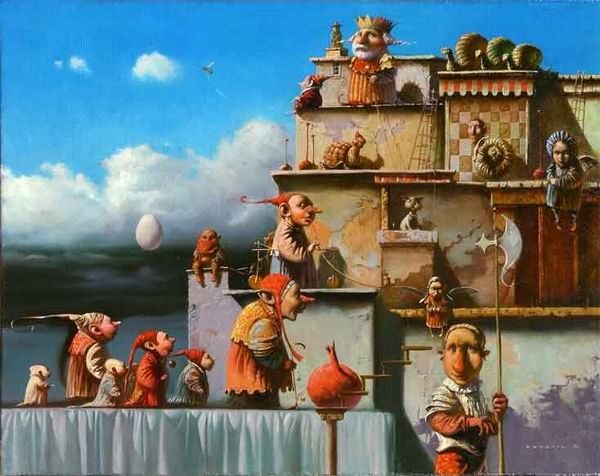
Absurdity of Life and Chess
There are no direct references to chess in Albert Camus' (1913-1960) major philosophical essays or his famous novels (The Stranger, The Plague, The Myth of Sisyphus, The Rebel). The focus of one of the most influential writers of the 20th century was on existential themes, absurdity, and human condition.
However, Camus's philosophy, particularly his concept of 'the absurd' as explored in The Myth of Sisyphus, can be intriguingly connected to chess.

For Camus, meaninglessness and absurdity is a consequence of two forces: humankind’s thirst for meaning and the world’s tender indifference. This leads to a realization that life has no inherent meaning, which one must confront.
In chess, a very complex game, we often find ourselves in position where the game's outcome seems absurdly unpredictable, mirroring life's seemingly pointless struggles. The strategic nature of chess can be seen as the human attempt to impose order and strategy on an inherently chaotic and meaningless existence.
In The Myth of Sisyphus, Sisyphus is condemned to roll a boulder up a hill only for it to roll back down, symbolizing the repetitive and futile nature of human existence.
In chess, Pawn, considered the least powerful man, moves forward only one small step with the hope of promotion but is frequently sacrificed. This can symbolize the Sisyphean struggle where small, repetitive moves (like pawn moves) are made in hopes of achieving something greater, even if the outcome might be futile or absurd.
 Black and white pawn, aware of their, sometimes futile, absurd struggles on the battleboard
Black and white pawn, aware of their, sometimes futile, absurd struggles on the battleboard
(however, there also really are glorious, creative artistic moments from them!)
.
Camus suggests that one must accept the absurdity of life and find personal meaning within it, embracing the struggle.
A chess player must accept the rules and the inherent unpredictability of the game, finding satisfaction in the play itself rather than the outcome. This mirrors Camus's idea of living with the absurd by engaging in life's 'game' with full awareness of its lack of ultimate purpose.
For Camus, recognizing the absurd leads to existential freedom where individuals make their own meaning.
Chess players have freedom within the constraints of the game's rules, much like humans within the constraints of life. Each move in chess can be seen as an act of personal choice, reflecting Camus's idea that we must create our own meaning through our actions.
 Find the meaning in the chaotic world (Capablanca chess club, Havana. 2008. photo by Alex Webb)
Find the meaning in the chaotic world (Capablanca chess club, Havana. 2008. photo by Alex Webb)
This connection between Camus's philosophy and chess highlights how both can be seen as metaphors for life's inherent meaninglessness and the human response to it, encouraging individuals to find personal significance in the face of the absurd.
Choosing to act, create, or love despite knowing these actions have no cosmic significance can be a powerful act of rebellion.
Engage in activities or pursue passions that resonate with your sense of self, that offer a counterbalance to the Absurd, whether it's art, science, simply being there for someone, or personal development.
And chess, and chess... (I hear y'all screaming)
Yours truly,


